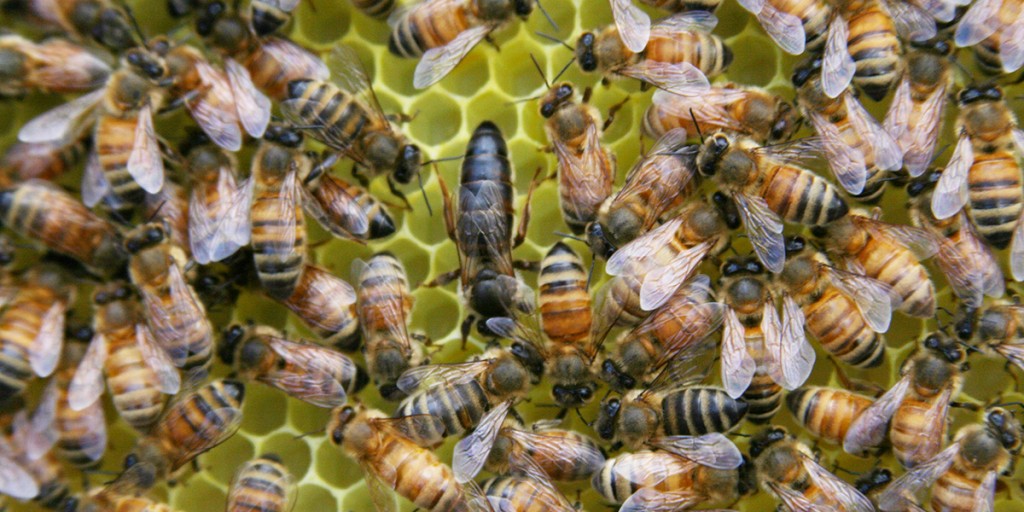It is possible to use nutrition to send correct information and support the physiological maturation of oocytes and spermatozoa
We are what we eat
The effect of nutrition on the development of the individual is extraordinarily great. The classic example comes from the world of insects: the queen bee is genetically a bee like any other, what changes is the diet based on “royal jelly”. This dietary change is enough to generate a completely different individual, unique in his community in appearance (larger) and function (ability to reproduce)

Queen bee fed by the workers. Only bees fed royal jelly for life become queens.
Nutrition and gametogenesis
All animals, including the human species, have been designed by evolution to ensure that they reproduce as, when and how much the external environment allows. Just think of the seasonality of estrus and reproduction in ruminants that give birth in the spring when the climate and the food available are better.
In fact, nutritional signals have the ability to be read by the metabolism and the endocrine system and to be translated into information on how genes are activated during gametogenesis and embryogenesis, the so-called epigenetics.
If the environment and/or eating habits are altered, the signals transmitted to our gametes will also be incorrect.


It is possible to intervene
If we know the specific biochemical signals, it is possible to use nutrition to send correct information and support the physiological maturation of oocytes and spermatozoa. We will thus have an increased chance of conceiving, leading a healthy pregnancy and having children in good health.
The best possible help is to follow a healthy lifestyle and a balanced diet.
The use of food supplements can facilitate this effort and also correct partially incorrect habits.

